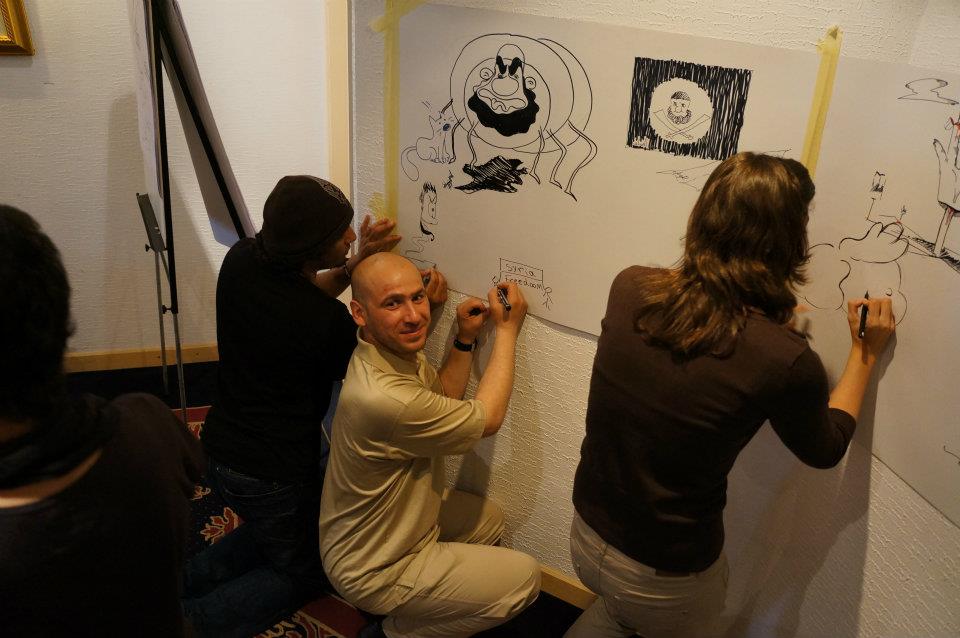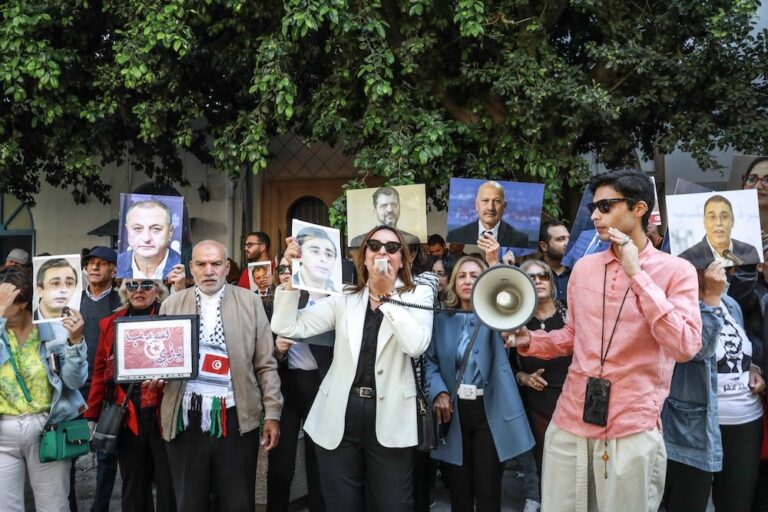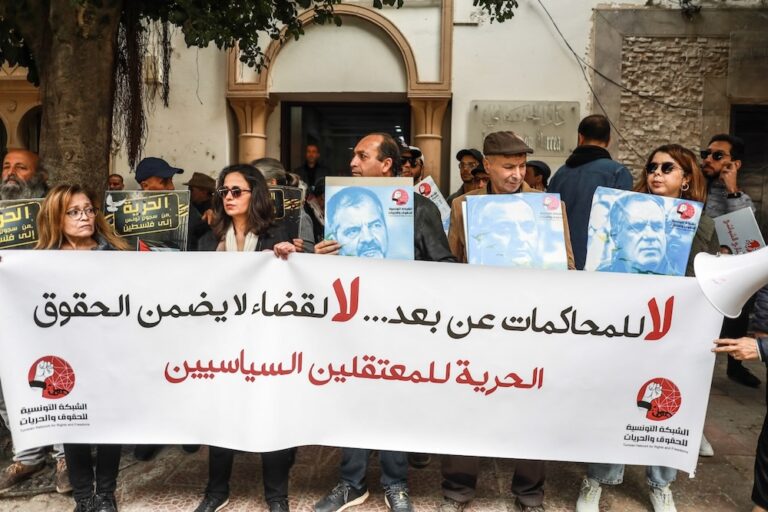"This workshop has demonstrated clearly that in Tunisia editorial cartoonists will be on the cutting edge of free speech," said CRNI Executive Director Robert Russell.
(CRNI/IFEX) – At a cartooning workshop in Sousse, participants from Tunisia, Egypt, Jordan and Syria compared how cartoons and wall graffiti were influential in the Arab Spring. At the gathering of 16 cartoonists, activists and the experts, the events of the year after the “Arab Spring” were highlighted in both discussion and cartoon drawing. The workshop was organized on 28 and 29 April 2012 by the International Freedom of Expression Exchange Tunisia Monitoring Group (IFEX-TMG), in cooperation with Cartoonists Rights Network International (CRNI) with support from the Tunisian Centre for Freedom of the Press (CTPJ).
CRNI Executive Director Dr. Robert Russell, the training leader, said, “This workshop has demonstrated clearly that in Tunisia editorial cartoonists will be on the cutting edge of free speech. If and when they experience any censorship, it will be time for the international community to re-evaluate the accomplishments of Tunisia’s Arab Spring movement.” CRNI Board Member Nik Kowsar and Ghias Aljundi, IFEX-TMG advocacy officer, also lead training sessions.
The cartoonists arrived with bundles of published and unpublished cartoons that they and their colleagues had created during the “Arab Spring.” Many of those cartoons were created on the barricades of the revolutions. These cartoons reflect the experiences of cartoonists as these artists/activists both witnessed and impacted historic events. Otherwise put, these cartoons are perfect thermometers of unprecedented moments in history.
It was clear that these brave cartoonists and online activists had taken risks to bring political cartooning to new levels of impact and power. Some of the cartoons were deadly serious and some were hysterically funny. They proved beyond a doubt what cartoonists all around the world know – tyrants can’t stand to be laughed at.
In the workshop sessions, which were designed to be interactive, the participants related their experiences before and after the revolutions and changes in power. One Syrian activist explained how the people, after the Assad government seized all the unsold spray cans, invented home-made spray cans from soft drink cans and the air pressure stolen from parked cars. It is clear from the participants’ explanations that while new opportunities and free speech are opening up for them, there are still dark clouds on the horizon. For instance, while some taboos have disappeared, such as drawing the highest officials, some new religious taboos have emerged. The trainers explained how to use the new opportunities in the changed environment to match the participants’ new sense of empowerment and responsibility.
One participant made an impassioned appeal to the cartoonists to form a strong professional and solidarity association in order to represent their common interests to the media and the public. We echo that sentiment.
The IFEX-TMG workshop for cartoonists ended with hope and resolve.



